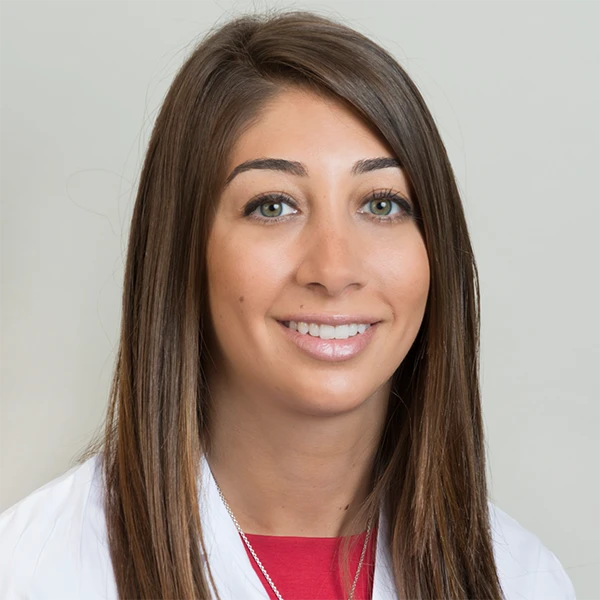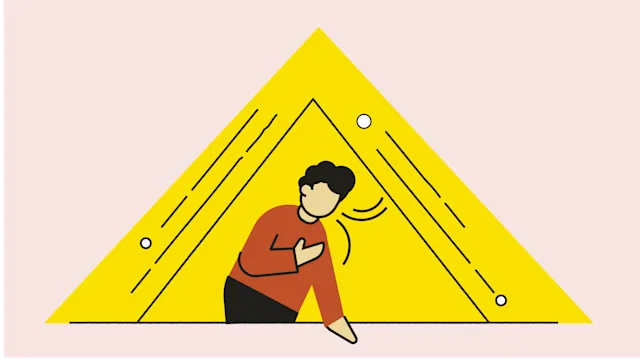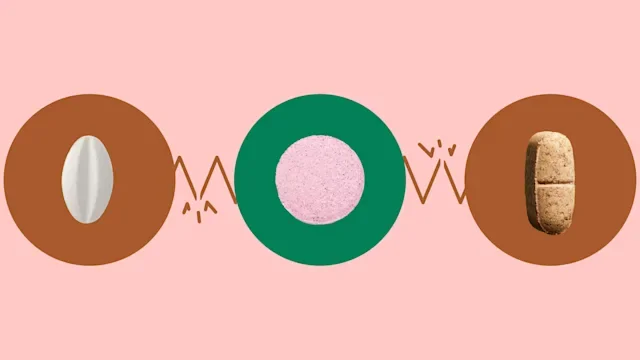Key takeaways:
Certain medications can irritate and erode the lining of the esophagus, leading to esophagitis or ulcers. This can cause heartburn, chest pain, and difficulty swallowing.
Many of these medications — like doxycycline, clindamycin, and ibuprofen — have alternatives that may be gentler on the stomach.
There are ways to reduce the likelihood of heartburn if you take these medications. Examples include drinking a full glass of water when you take your medications and staying upright for 30 to 60 minutes after swallowing your pills.
Many people experience heartburn, chest pain, and indigestion. But fewer think that their medications might be the cause. Even so, many common prescription and over-the-counter (OTC) medications can directly harm the lining of the esophagus and stomach. This can lead to pill esophagitis — an irritation and inflammation of the lining of the esophagus. And this condition can progress to an ulcer.
We’ll list the most common medications that may have this side effect and discuss how to reduce your chances of developing heartburn or gastrointestinal (GI) injury.
1. Doxycycline and other tetracyclines
Antibiotics — especially tetracyclines — cause about half of the cases of esophagitis. Tetracyclines are very acidic and directly irritate the esophagus and stomach lining, often causing pain within hours of taking it.
Doxycycline is one of the main culprits. It can even cause ulcers (sores) in the lining of the esophagus and stomach. One way to help minimize symptoms of an upset stomach is to take doxycycline and other tetracyclines with food.
2. Clindamycin
Clindamycin is another type of antibiotic. It has also been shown to cause irritation and erosions in the esophagus. One small but revealing study examined people who reported pain with swallowing after taking clindamycin. All of them had visible esophageal ulcers when they were examined with endoscopy (a camera that looks inside the GI system).
3. Aspirin
Many people take a daily aspirin for cardiovascular disease. It prevents platelets from clumping together, which can help prevent the type of blood clots that lead to strokes and heart attacks.
But aspirin also disrupts prostaglandins — molecules that help protect the gut lining. Prostaglandins travel all around the body and help heal injuries, like irritation of the esophagus. So aspirin can lead to both esophagitis and bleeding in the GI tract. Lower doses of aspirin carry a lower risk for esophagitis.
4. Ibuprofen and other NSAIDs
NSAIDs (nonsteroidal anti-inflammatory drugs) — including ibuprofen (Motrin, Advil) and naproxen (Aleve) — also affect prostaglandins and can lead to ulcers in the esophagus and stomach. This can lead to symptoms like heartburn, stomach pain, or dark stool (if the ulcers are bleeding).
If you take NSAIDs and you’re having these symptoms, ask your provider about switching to a different NSAID, like celecoxib (Celebrex). This NSAID works slightly differently, and it’s easier on the esophagus and stomach.
It’s important to note that the risk of GI bleeding significantly increases when higher doses of ibuprofen are combined with daily aspirin.
5. Bisphosphonates
Bisphosphonates are a class of medications that treat osteoporosis. Common examples includealendronate (Fosamax) and ibandronate (Boniva).
Bisphosphonates can damage the esophagus in a way that leads to narrowing of the esophagus (esophageal stricture). They are more likely to do this than any other pill. But risedronate (Actonel) — a bisphosphonate — may have fewer gastrointestinal side effects compared to alendronate. So it may be the safer option.
Given the risk of esophageal stricture, it’s important to contact your provider right away if you experience:
Chest pain
New or worsening heartburn
Difficulty swallowing
A feeling that food is getting stuck
Pain with swallowing
6. Potassium supplements
Potassium chloride is a supplement for people with low potassium levels. And it’s a well-documented cause of medication-related esophagitis. A second type of potassium supplement — potassium citrate (Urocit-K) — may also irritate the esophagus.
Solid forms, like capsules and tablets, are more likely to cause irritation. So, if this is an issue, you can try switching to a liquid form of potassium.
7. Iron supplements
Ferrous sulfate — found in most OTC iron supplements — can cause direct chemical injury to the esophagus. It’s similar to tetracyclines in this way. Ferrous sulfate becomes very acidic when it dissolves in saliva. This means it can injure the lining of the esophagus or stomach as it dissolves.
The good news is that there are options for iron supplementation that may be easier on the gut. This includes Pur-Absorb iron packets, Feosol natural release, or supplements containing ferrous fumarate.
8. Quinidine
Quinidine is an older medication used when people have abnormal heart rhythms like atrial fibrillation. Like bisphosphonates, it can injure the esophagus and lead to a stricture. But there are many alternative heart medications that are more common these days.
How to avoid heartburn with these medications
Esophagitis typically improves within a few weeks after stopping the offending medication. But there are things that you can do to prevent or reduce the chances of it happening in the first place:
Do not lie down right after taking these medications. Stand or sit upright for at least 30 to 60 minutes after taking any of these medications. It’s best if you do not take them before bed.
Drink enough fluids when you take your medication. Try to take your pills with about half a cup of water (4 oz) instead of a small sip (1 oz). Ideally, you can take medications with a full cup of water (8 oz) to minimize the risk of pills getting stuck in the esophagus and causing damage.
Consider taking your medication with food. But talk to your pharmacist first because sometimes what you eat or drink can affect how your body absorbs the medication.
Talk to your provider about alternatives. Some medications may be available in different forms that are easier on the digestive tract and cause less irritation.
Treat minor heartburn symptoms. Taking OTC antacids can help, but some of these may interact with your medication. Your provider may recommend a protective medication, like a proton pump inhibitor (PPI). PPIs block acid that can cause further irritation and prevent healing. Examples include omeprazole (Prilosec), pantoprazole (Protonix), and esomeprazole (Nexium).
The bottom line
Heartburn and indigestion can be uncomfortable and significantly disrupt important parts of your day, like sleeping and eating. But many people dismiss these symptoms as temporary upset. If you’re taking any of the above medications, don’t ignore new symptoms of pain, difficulty swallowing, or heartburn. They can cause damage to the lining of your esophagus and stomach. And there may be alternative treatments that will protect your GI tract and alleviate your symptoms.

Why trust our experts?


References
Abajo, F. J., et al. (2001). Risk of upper gastrointestinal bleeding and perforation associated with low-dose aspirin as plain and enteric-coated formulations. BMC Clinical Pharmacology.
Bestari, M. B., et al. (2019). Clindamycin-induced esophageal injury: Is it an underdiagnosed entity?Clinical Medicine Insights.
Bonavina, L., et al. (1987). Drug-induced esophageal strictures. Annals of Surgery.
Fazil, M., et al. (2013). Bisphosphonates: Therapeutics potential and recent advances in drug delivery. Drug Delivery.
Kikendall, J. W. (1999). Pill esophagitis. Clinical Gastroenterology.
Saleem, F., et al. (2022). Drug induced esophagitis. StatPearls.
Xiao, S-Y., et al. (2013). Gastric mucosal necrosis with vascular degeneration induced by doxycycline. The American Journal of Surgical Pathology.














